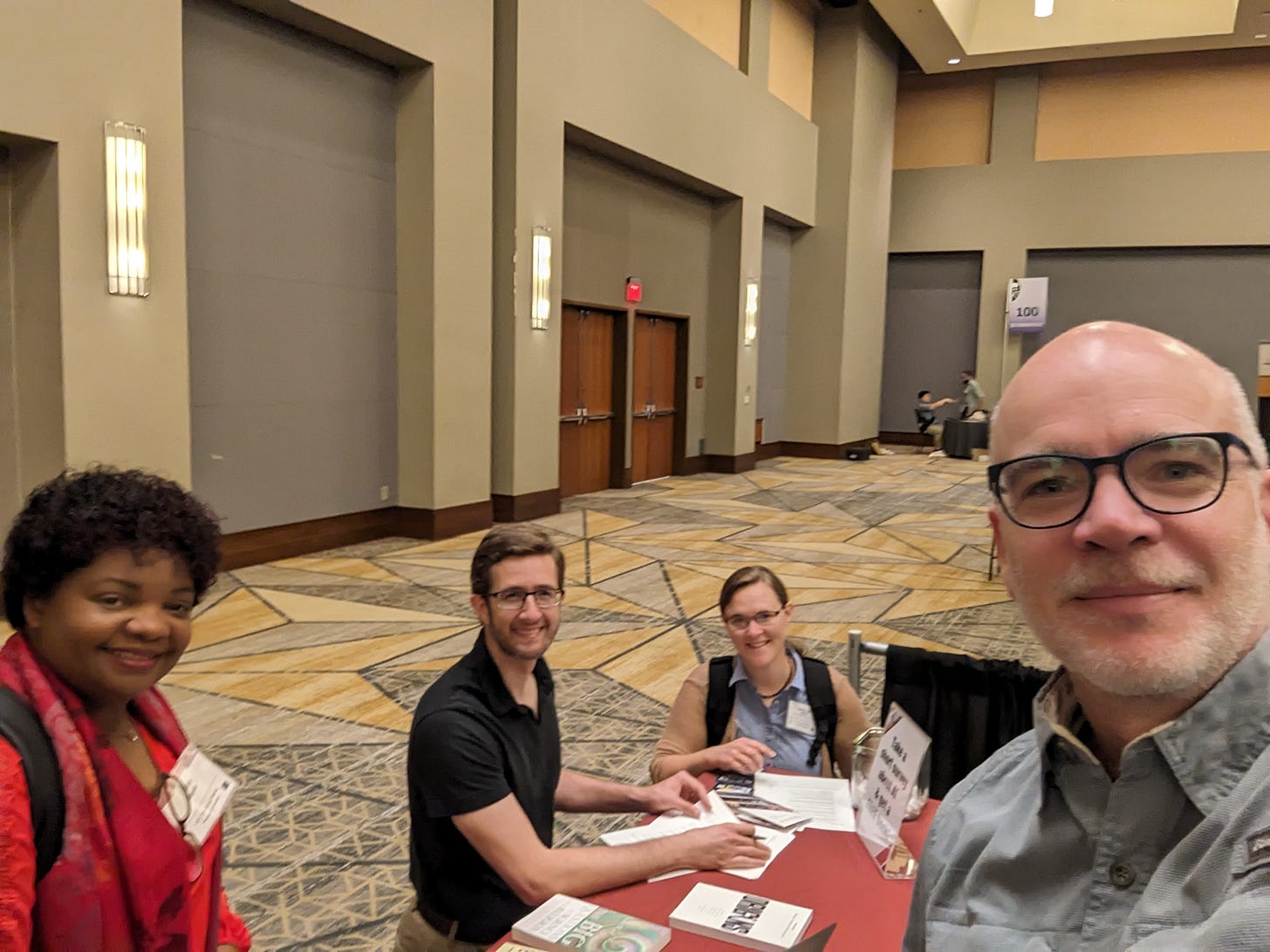Asking and Answering Questions about Artificial Intelligence
As I said yesterday, I’m in the exhibit hall at the Evangelical Theological Society annual meeting running a booth for BioLogos. The way booth space is allocated follows some complicated formula for how long you’ve been coming here, and because we’re still relative newcomers we’re fairly far down on the list. When they finally get to us and ask which space we want, all of the prime spots are gone (the ones next to the big book publishers where most of the traffic is). So I tend to look for a spot that is next to other organizations that I’d enjoy spending a lot of time in close proximity with. For the last several years, that has been Christians for Biblical Equality. Similar to BioLogos and our perspective on science, CBE is not universally upheld as faithful Christians by evangelicals, so we’re able to commiserate together on the outskirts of conference.
The “outskirts” is both metaphorical and literal this year. Our booths are on the very edge of the exhibition space, where few people tread. I’ve been joking with people who make it to the booth and comment about venturing so far to get there. I say, “we’re the God-fearing Greeks who only get to look through the synagogue windows.” That joke goes over pretty well to this crowd.
I knew I’d need a gimmick of some kind to engage people, so on the plane on the way here I pulled up ChatGPT and said, “I’m going to the conference of the Evangelical Theological Society; make up some survey questions about artificial intelligence that will be interesting and thought-provoking to the attendees.” So I have a sign on my table that says, “Take a short survey about AI & get a FREE book.” That’s done pretty well at getting a high rate of engagement of the relatively few people passing by.

Here are a few of the questions ChatGPT helped me generate, to which respondents had to say whether they strongly agree, agree, disagree, or strongly disagree (to the chagrin of many respondents, I left out the middle option so they had to commit):
Artificial intelligence poses a potential risk to the traditional understanding of human uniqueness and the divine image in humanity.
Just as calculators aid scientists in complex calculations without undermining the integrity of their work, artificial intelligence tools used by content creators and scholars similarly enhance their creative process without diminishing the value and authenticity of their creations.
Creators of AI have a moral duty to ensure that access of AI applications are available to all people, not just the wealthy.
At some point in the future, it is possible that advanced artificial intelligence systems could be considered as having a form of personhood, deserving rights and moral considerations similar to humans.
AI, no matter how advanced, can never truly emulate the Imago Dei (Image of God) inherent in humans.
These questions led to lots of fun conversations. And people here, of course, want to argue about metaphysical assumptions behind the questions. I’m not sure it’s correct to say that ChatGPT has metaphysical assumptions, but it is certainly correct that the data set from which ChatGPT draws was created by people who do have such assumptions!
I’m very interested to tabulate the results of this survey, and the survey takers were very interested to hear the results too. Another of the motivations for doing it like this came from our marketing director who wants to acquire more email addresses for the BioLogos list. So at the bottom of the survey we asked for an email address, saying they would be added to the BioLogos email list and that I’d write up a story for our newsletter about this at some point in the future. I surprised at how many people were willing to exchange their email address for a book and promise of some future survey results (at least they wrote down a string of characters with an @ in it somewhere!).
If you’d like to get in on the fun, I’m afraid I can’t give you a book through the internet, but you can sign up for the BioLogos newsletter to hear the results!

